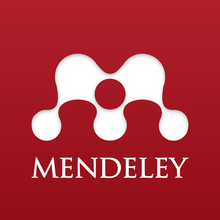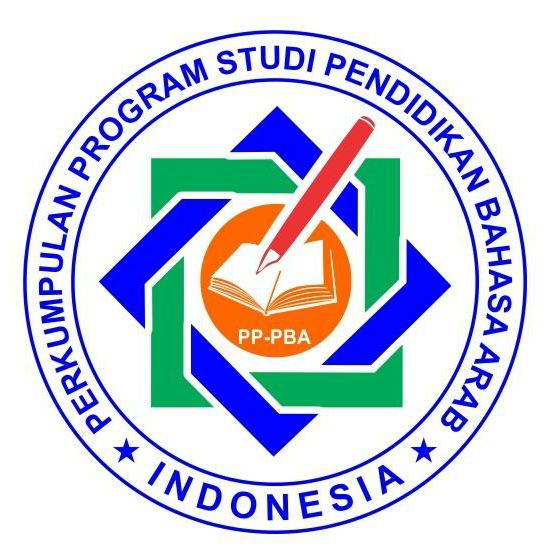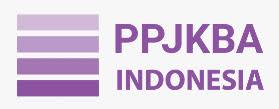Dakwah Islam dalam Dunia Pendidikan Bahasa Arab untuk Membentuk Generasi Muslim yang Sadar
Al-Da’wah al-Islāmiyyah fī Majāl Ta’līm al-Lugah al-‘Arabiyyah litakwīn Jaili al-Muslim al-Wa’ī
DOI:
https://doi.org/10.37680/aphorisme.v4i2.4494Keywords:
Arabic Language, Education, Islamic ValuesAbstract
This research aims to investigate the positive impact of using Arabic in an educational context on understanding the Islamic values contained in it. The target of this research is students from the Faculty of Da'wah and Communication Sciences at UIN Syarif Hidayatullah Jakarta. This research applies a qualitative approach using case study and questionnaire techniques as the main method of data collection. From the survei results, it can be concluded that the majority of respondents (90%) consider it important to include Arabic in the university curriculum. The reason for implementing the use of Arabic is because it involves moral development, cross-cultural communication, and understanding Islamic teachings. Respondents also saw the benefits of learning Arabic in the context of deepening understanding of the Koran, improving the quality of worship, and forming polite character. Overall, the survei supports the success of Arabic in making a positive contribution to the moral and spiritual formation of students. Some respondents had different points of view because they found it difficult to learn Arabic, but they provided several different solutions for learning it. The next reason for differences of opinion is the status of Arabic as an international language because not all universities have muslim students.
References
Agung, N. (2022). Kurikulum Pembelajaran Bahasa Arab Perguruan Tinggi: Analisis Komparatif Kurikulum Pembelajaran Bahasa Arab. AL-WARAQAH Jurnal Pendidikan Bahasa Arab. https://api.semanticscholar.org/CorpusID:255564863
Arifin, M. (1994). Pedoman Pelaksanaan Bimbingan dan Penyuluhan Agama. Golden Trayen.
Cahya Edi Setyawan, Andri Warseto, H. N. W. (2021). Pandangan Stephen Krashen dalam Pemerolehan Bahasa dan Implikasinya dalam Pembelajaran Bahasa Arab. Jurnal Ihtimam, 2(1), 75–105. https://doi.org/10.36668/jih.v2i1.213
Ekawati, D. (2017). Mencermati Perubahan Kurikulum Pengajaran Bahasa Arab di Sekolah. An Nabighoh Jurnal Pendidikan Dan Pembelajaran Bahasa Arab, 19(1), 47. https://doi.org/10.32332/an-nabighoh.v19i1.757
Khaldun, I. (2020). Muqaddimah. Dār al-Kutub al-ʻIlmīyah. https://books.google.co.id/books?id=se3tDwAAQBAJ
Mahmudah, M., Siregar, M., & Putra, W. H. (2023). Modernization of Islam and Language Education in the Society 5.0 Era in the Perspective of Harun Nasution. Scaffolding: Jurnal Pendidikan Islam Dan Multikulturalisme, 5(3), 30–43. https://doi.org/10.37680/scaffolding.v5i3.3455
Mubarak, A. F., Putra, W. H., & Salma, K. N. (2022). al-‘Alāqah al-Irtibāṭīyah bayn al-Bī’ah al-Lughawīyah wa-Mahārāt al-Lughah al-‘Arabīyah ladá Ṭalabat al-Ma‘had. Al-Ma‘Rifah, 19(2), 183–192. https://doi.org/10.21009/almakrifah.19.02.05
Muhzin Nawawi, M. N. (2017). Pengembangan Kurikulum Pendidikan Bahasa Arab. An Nabighoh Jurnal Pendidikan Dan Pembelajaran Bahasa Arab, 19(1), 85. https://doi.org/10.32332/an-nabighoh.v19i1.759
Musyarapah, M. (2017). The Role of Progressive Philosophy in the Curriculum Based on John Dewey’s Theory. Al-Hayat: Journal of Islamic Education, 1(1), 32–39.
Nurrohman, A. S., & Mujahidin, A. (2022). Strategi Dakwah Digital dalam Meningkatkan Viewers di Channel Youtube Jeda Nulis. JUSMA: Jurnal Studi Islam Dan Masyarakat, 1(1), 20–32. https://doi.org/10.21154/jusma.v1i1.513
Putra, W H. (2021). LINGUISTIK AL-QUR’AN;Membedah Makna dalam Konvensi Bahasa. Penerbit Adab. https://books.google.co.id/books?id=Ef05EAAAQBAJ
Putra, Wahyu Hanafi, & Sholihah, R. A. (2020). Politik Bahasa Asing dan Hegemoni Pesantren di Nusantara. Aphorisme: Journal of Arabic Language, Literature, and Education, 1(1), 43–53. https://doi.org/10.37680/aphorisme.v1i1.320
Rara Nur Fiyana Fatah, H. (2022). Dampak Perubahan Undang-Undang Nomor 16 Tahun 2019 Terhadap Dispensasi Kawin (Studi Kasus di Pengadilan Agama Kebumen Kelas IA). UIN Prof. KH Saifuddin Zuhri.
Rizqi, M. R. (2016). Peran Bi’ah Lughowiyyah dalam meningkatkan pemerolehan bahasa Arab. Jurnal Alfazuna: Jurnal Pembelajaran Bahasa Arab Dan KebahasaAraban, 1(1), 128–144.
Setyawan, E. C. (n.d.). Peran Bahasa Arab Dalam Pendidikan Islam Sebagai Urgensitas Menghadapi Revolusi Industri 4.0. Jurnal Lahjah Arabiyah, 1(1).
Suparta, M., & H, H. (n.d.). Metode Dakwah. Prenada Media Group.
Wa, M. (n.d.). Dakwah Melalui Pembelajaran Bahasa Arab. Jurnal Al-Ta’dib, 6(1).
Widayat, P. A. (2017). Inovasi Kurikulum Bahasa Arab Madrasah Aliyah Berbasis Konstuktivisme. An Nabighoh Jurnal Pendidikan Dan Pembelajaran Bahasa Arab, 19(1), 157. https://doi.org/10.32332/an-nabighoh.v19i1.762
Yasin, A. F., S., & Muhammad. (n.d.). Urgensi Strategi Pembelajaran Bahasa Arab di Era Milenial. INNOVATIVE: Journal of Social Science Research, 3(2).
Yunus, M. (2004). Tafsir Al-Qur’an Al-Karim. Hidakarya Agung.
Downloads
Published
Issue
Section
License
Authors who publish with this journal agree to the following terms:
Authors retain copyright and grant the journal right of first publication with the work simultaneously licensed under a Creative Commons Attribution-NonCommercial 4.0 International License that allows others to share the work with an acknowledgement of the work's authorship and initial publication in this journal.
Authors are able to enter into separate, additional contractual arrangements for the non-exclusive distribution of the journal's published version of the work (e.g., post it to an institutional repository or publish it in a book), with an acknowledgement of its initial publication in this journal.
Authors are permitted and encouraged to post their work online (e.g., in institutional repositories or on their website) prior to and during the submission process, as it can lead to productive exchanges, as well as earlier and greater citation of published work.




.jpg)


